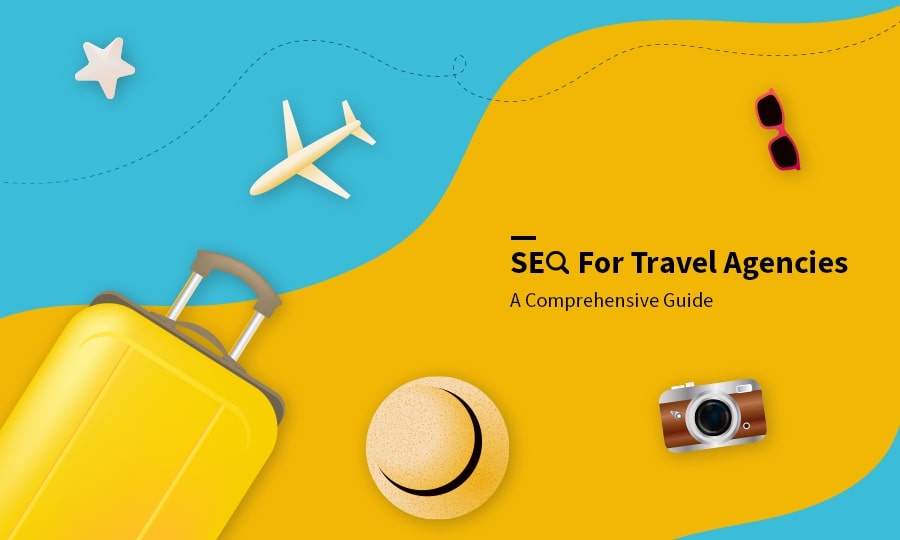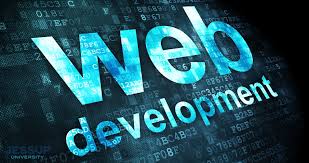
Advancements of AI in Personalizing Travel Websites
Traveling technology is progressing very rapidly. Some of the best changes within recent years on travel portals include AI and personalization. Regardless of whether it involves booking a flight or making hotel bookings, it becomes integral to travel plans nowadays. The implementation of AI into the travel portals helps ensure that travelling becomes fast-paced, well-suited, and intuitive more than ever before.
In this blog, we will discuss how AI is revolutionizing travel portals and how personalization is enhancing the travel experience for individuals.
What Is a Travel Portal?
A travel portal is an e-commerce site on the internet. It offers the booking services of flights, hotels, car rentals, tours, and even insurance. These portals are sites where, in one portal, a customer can plan trips, get price comparisons, read reviews, and book his services all from one place. Both the consumer and businesses use a travel portal.
Where the old-fashioned travel portals could only manage the most basic booking functionality, advancement in technology made the same portals so much more technologically advanced. AI and machine learning influenced it so much that they were able to help users enjoy the platform with more personal, efficient, and user-friendly experiences.
What does AI contribute to travel portals?
Artificial intelligence is the ability of machines or software to simulate human intelligence and behavior. It is capable of processing humongous amounts of data, recognizing patterns, and then deciding on that basis. This AI is being used in travel portals for optimizing various aspects of the travel booking process, offering customers and service providers various benefits.
Some of the major ways in which AI is integrated into travel portals include the following:
1. Personalized Recommendations
The most important feature of AI in a travel portal is personalized recommendations. Based on an analysis of user behavior, preferences, and past history of traveling, AI may suggest flights, hotels, and destinations to appeal to the individual user.
For example, if a user frequently books flights to beach destinations, the AI-powered travel portal will suggest similar vacation spots or promote beach hotels. If a traveler has shown interest in eco-friendly hotels or activities, the system can suggest sustainable travel options. These personalized suggestions help save time and make the booking process easier and more enjoyable for travelers.
2. Chatbots and Virtual Assistants
Travel portals are increasingly including AI-driven chatbots to facilitate quicker and smoother queries regarding common problems on travel websites, such as bookings, flight schedules, hotel facilities, and many more with regards to payments.
In contrast to conventional customer support, chatbots can be put into action 24/7 and will assist travelers whenever needed. That way, the platform can manage multiple customer interactions in a single go, thereby making the whole process much smoother. Moreover, advanced AI-powered chatbots can comprehend natural language and respond appropriately; thus, the interaction will appear even more human-like and personalized.
Virtual assistants go a step further by helping users manage their entire travel itinerary, from flight bookings to hotel stays and even on-trip recommendations. These AI tools can monitor travel conditions, provide real-time updates, and suggest alternatives if there are delays or changes in the traveler's schedule.
3. Price Prediction and Dynamic Pricing
By using artificial intelligence, an algorithm can go through historical data, trends, and conditions in the market to determine the best time to book flights and hotel reservations at their lowest prices. This helps in informed decision-making for the traveler, who gets the best deals.
For instance, some travel portals offer price prediction tools that give the user insight into whether the price of a flight is going to increase or decrease in the next few days. The user can then decide whether to book now or wait for a better deal.
In the case of AI-based dynamic pricing, the cost of services varies in real time with the demand, time of booking, customer profile, and even market conditions. Thus, through price optimization, travel portals can be competitive in their rates but at the same time earn the highest revenue.
4. Automated Travel Assistance
Moreover, AI can assist travelers to provide personalized travel assistance. Even as soon as a trip has been booked, AI can immediately formulate and send travel itineraries, booking confirmations, and even send reminders. In case some disruption occurs, for example, the flight is delayed or even cancelled, AI immediately will inform the user, giving them the chance to make other arrangements or re-book.
Travel portals also start using AI to make suggestions during the journey. For instance, by knowing the user's location, AI will indicate the nearest attractions, restaurants, and activities, making them enjoy their journey much more.
Personalization: How AI Improves Experience
Personalization is what makes a traveler feel valued and understood the most. Through AI and machine learning techniques, travel portals have been able to personalize nearly every feature of the user experience.
How personalization takes travel portals to the next level is through:
1. Customized search results
Unlike ordinary search results, AI-enabled travel portals would present specific matches according to a person's interests and preferences. Take, for example, an individual that only buys their ticket on a morning, or in preference to window seats when selecting tickets.
If you’re a family with young children, the portal may highlight family-friendly hotels or vacation packages, while business travelers may see options with flexible cancellation policies or business-class flights. By analyzing the user’s behavior, the portal ensures the most relevant options are presented.
2. Customized Travel Packages
Another help of AI can be the development of travel packages based on traveler needs and budget. Whether the person wants luxury, an adventure tour, or something of culture, the travel-related portal will recommend its own package with something that meets the user's taste. It bases the idea on past orders, social media activities, and more to come up with something more tailored to the consumer's preference.
3. Relevant Promotions and Discounts
AI-enabled travel portals can even make an offer and discount tailored to the individual user's interest as well as previous booking patterns. In other words, whenever a traveler books a hotel multiple times in one destination, the portal may notify that traveler with offers or some other related deals in other destinations. AI can also send individual promotions to loyal customers or first-time users based on browsing history.
4. After-Trip Engagement
It doesn't stop here; the travel portals keep the attention of the travelers even after the trips have been completed. Upon the return of the traveler, the portal would send follow-up emails that were personalized, asking for reviews and feedback or suggestions for potential future trips. All this data helps AI fine-tune its recommendations even better so that travelers only receive the best suggestions for their future adventures.
5. Future of AI and Personalization in Travel
Travel portals' sophisticated features will follow the advancing technology of AI, as the smart chatbots will arise, along with the growing efficiency of natural language processing and the better predictive analytics, allowing the portals to provide much more accurate price forecasts and recommendations.
The same trend is that AI is going to take a human's experience of travel toward an absolutely seamless and end-to-end solution: smart yet intuitive. Trip planning from automatic real-time on a journey becomes much easier, more enjoyable, and more customized in ever-higher ways because of AI.
Conclusion
Ways the people book, plan, or even experience travel have been transformed fully, with AI as well as personalization now deep set within the travel portals. From personalized recommendations and real-time pricing to virtual assistants and post-trip engagement, AI is revolutionizing every constituent element of the travel process. And thus, we are going to see much more innovative things come our way that are making travel easier, faster, and more personalized. Already today, it is not too soon when we hear that there are travelers benefiting from AI look ahead into an even brighter future at being personalized and seamless while traveling.
Read Also
Role of Backend Web Development in the Travel Industry

 Start your Travel Business with Our 7 Day Free Trial Website!
Start your Travel Business with Our 7 Day Free Trial Website!





